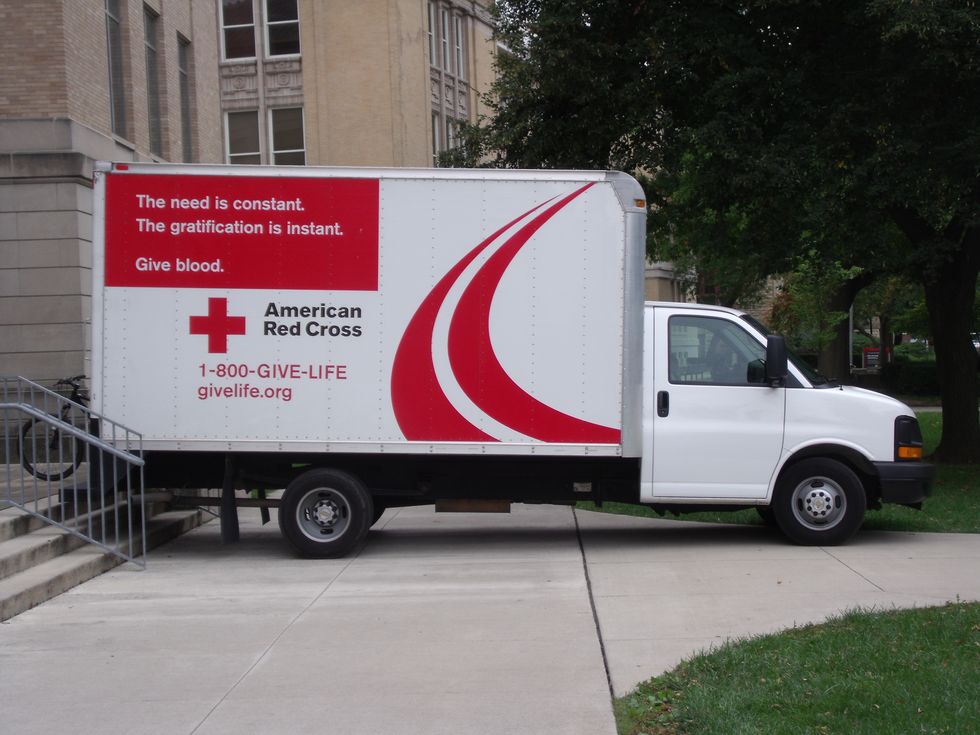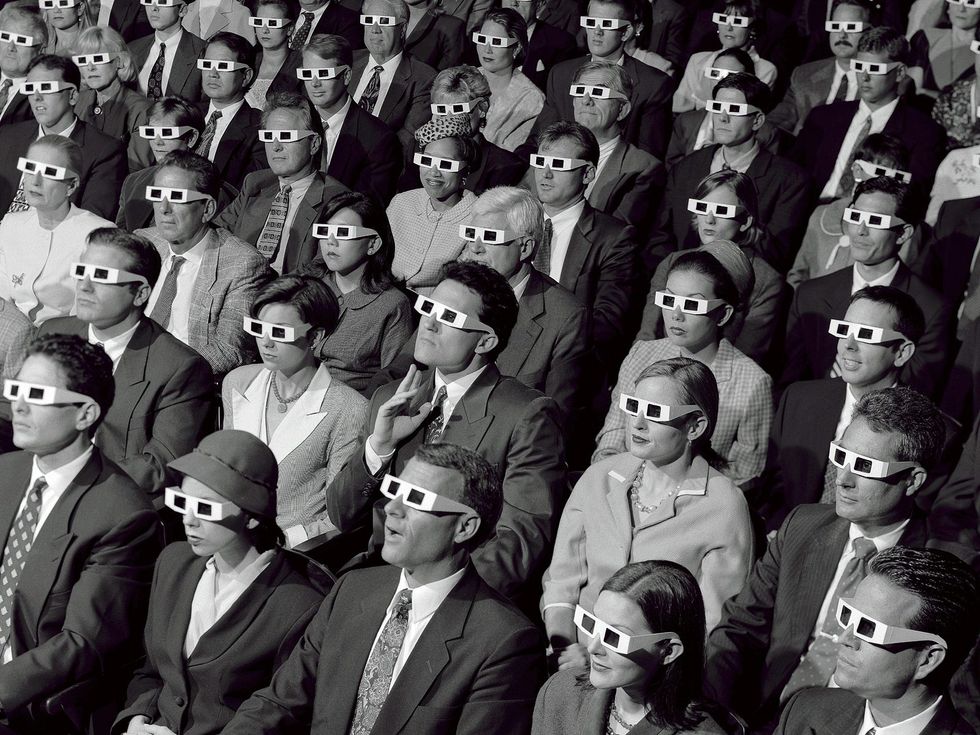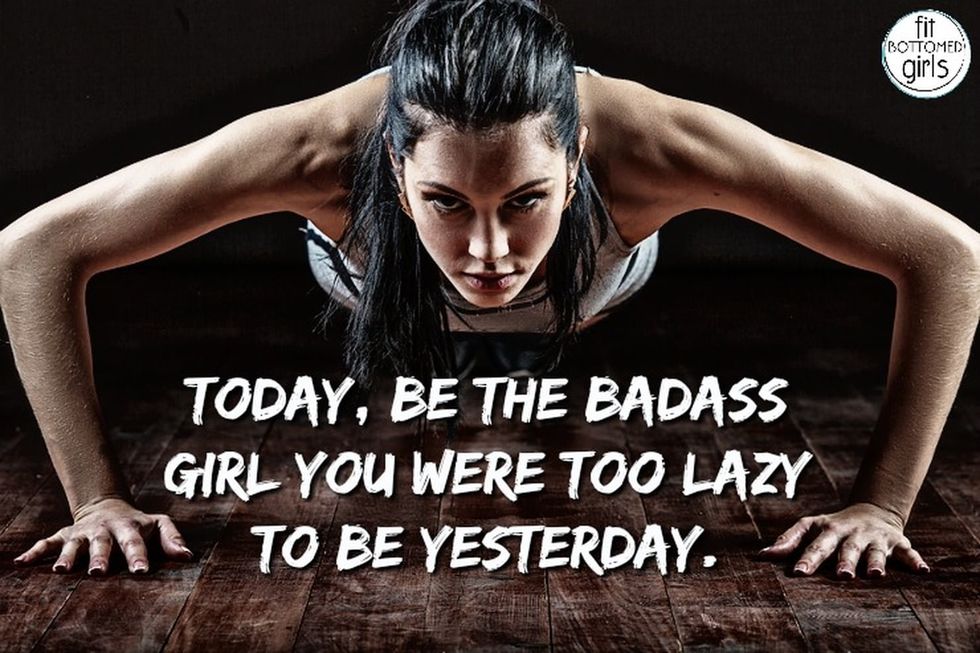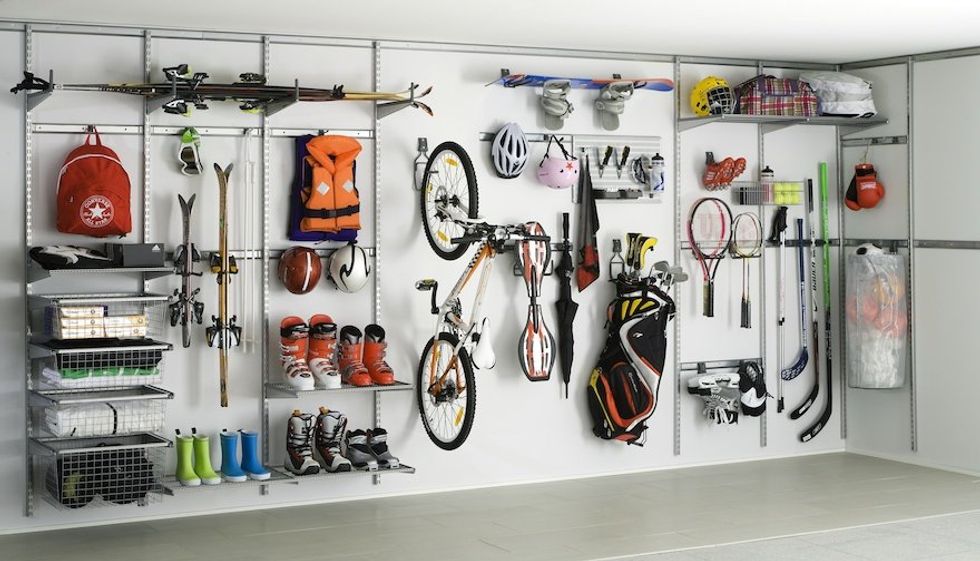Donating blood is an absolutely incredible thing, something that I absolutely encourage everyone who can do it to do. It is a wonderful experience, and for someone is a) paranoid and b) absolutely terrified of needles, that experience has six distinct stages.
1. The Preparation
If you have an aversion to donating to blood, whether it's your first time, you're afraid of needles, or you've had a rough prior experience, you're gonna want to prepare for your experience. And thus you enter Stage One.
This is the stage where you sit there and read and reread all the Red Cross instructions, the stage where you take care of yourself probably better than you ever have if you're an irresponsible college student like me. The week before blood donation is spent looking at all the instructions, making sure five million times that any medications you take aren't on the deferral list (spoiler alert: if you're donating whole blood, they probably aren't). You look at the eligibility criteria, again and again, you read the guide for first-time blood donors even if it isn't your first time, and you are all over those educational materials.
The day before the drive, you've got your bottle of water to keep you hydrated, you're eating all the recommended iron-rich foods (or, if you're a vegetarian on a meal plan like me, you're all over the salad bar spinach), and you're making sure to get a good night's rest. The day of you're probably eating the healthiest, most balanced breakfast you've had in weeks. You're absolutely ready. Which brings you to...
2. The Beginning
This stage lasts from blood drive entrance to the time when you're called back. And this is where you're at your most confident. You've read those educational materials and you're totally ready. The super friendly and grateful people at the beginning of the drive are making you feel like a superhero.
And when you sit down, either reading the materials they make you read or languishing in the glory of having done it all beforehand, you're pumping yourself up. You're probably using the people who've already donated to reassure yourself (or not, if you're unlucky enough to be in a place where nurses are running to help someone who passed out. Sorry, anyone who was around the first time I gave). You've got a false sense of confidence because most people who donate make it look easy. And then that sense of confidence might go away quickly once you hit Stage Three.
3. The First Blood
This stage begins when you're called back for the little evaluation. The nurse takes your vitals, it's easy and familiar. Until the dreaded finger-prick. For people who are terrified of needles and blood, this is a strong contender for the worst part of the donation process. You can't see the needle and it doesn't hurt badly but for me even the thought of them getting enough blood to test makes me feel sick.
You grin and bear it, it's over, and you start feeling relieved again. Because thank God that's over. But it usually brings a little bit of trepidation because if the initial needle was that bad...how is the actual donation gonna go?
4. The Questioning
If you did the Rapidpass that Red Cross offers (which I highly recommend) this can get lumped in with Stage One. But for those who didn't, this comes here. This stage is where you get to answer the million and a half questions that the Red Cross has to ensure that your blood is safe.
A lot of it's pretty easy. No, I don't have mad cow disease; I haven't had a blood transfusion in France in a very specific time frame; I've never shot up with heroin. Sometimes you get to have the fun of going through an obligatory long line of questioning that leads to the verdict that you can still donate, like if you're taking a medication on the list that doesn't defer from whole blood donation but defers from donating platelets. But regardless of how long it takes, usually it ends with the conclusion that yes, you can donate. And then you get to move to the moment we've all been waiting for.
5. The Donation
This is where you sit down in the chair, they mark the vein, you finally see the needle they're going to be using. No matter how many times I donate, I'm sure I'll always have the thought of oh that needle is WAY bigger than I remembered. This would be the time to tell them if you aren't a needle fan because the red cross has dealt with plenty of people who faint at the sight of a needle. They'll take precautions for you.
And once the needle is in, you finally get to relax. If you have a history of getting faint with donation, let them know and this is when they'll give you easy exercises, like lifting your legs up periodically, to help make sure you do alright. This stage might seem scary, but just remember that the nurses are there to help you. Be honest with them and they'll make donation a breeze.
6. The Aftermath
Now you're done with donating, and for most people, it's pretty dang easy. You get to leave knowing that you saved three lives, and with that great warm fuzzy feeling. And on top of that, you starving college students get some juice and snacks to make your life a lot easier. It's pretty great, honestly.
Sometimes, if you didn't prepare well, this stage doesn't go quite so hot. I felt nauseous the first time I donated, didn't eat much breakfast and decided to donate anyway, which led to me lying on the Red Cross floor for a good few minutes because I kept getting dizzy spells. But to any first-time donors reading this, don't worry. The Red Cross guidelines of "Eat a substantial breakfast and drink lots of water" are there for a reason, and if you follow them, you should be fine.
But either way, you get to leave knowing that an hour or so of your time has saved three people's lives. Because as much of an emotional roller coaster as blood donation is, it's nothing compared to what people who need blood and have to wait for donors like you have to go through. A day of preparation and an hour donating is a small price to pay for saving a life.
So to anyone who wonders if they should donate or not, take it from someone who's terrified of medical facilities and needles: it is a worthwhile experience. You can do it, and afterward, you'll feel amazing knowing that you did an incredible thing. Download the Red Cross Blood Donation app and make yourself an appointment. You'll thank yourself for it, and the three people whose lives you've saved will thank you as well.



 StableDiffusion
StableDiffusion
 StableDiffusion
StableDiffusion
 StableDiffusion
StableDiffusion

 women sitting on rock near body of waterPhoto by
women sitting on rock near body of waterPhoto by 
 Photo by
Photo by  Photo by
Photo by  Photo by
Photo by  Photo by
Photo by  Photo by
Photo by  Photo by
Photo by  Photo by
Photo by  Photo by
Photo by  Photo by
Photo by  Photo by
Photo by 

















